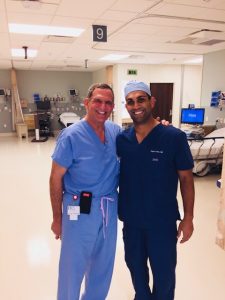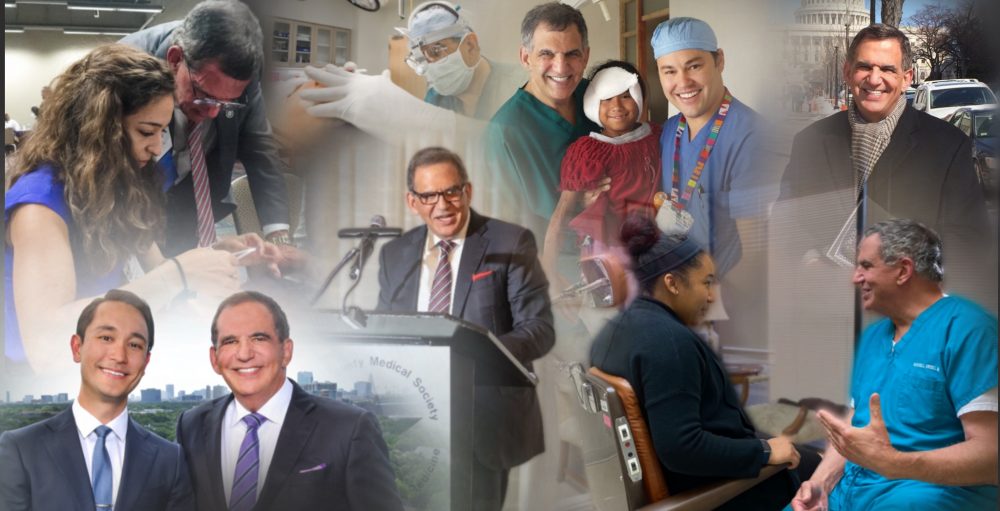Politics too often play a role in the immigration system and all groups are lumped together without an examination of the vital role that immigrants play in our country. This is also true for International Medical Graduates (IMGs) who have provided a vital role in health care in the US for decades, especially in underserved and rural communities, and for whom we are grateful.  For decades IMG physicians have provided a valuable safety net of care for patients in this country. The commitment of International Medical Graduates not only extends to the patients they serve but the communities in which they live, where IMGs become valuable community leaders and stewards of health. In 2017, nearly a third (31.8 percent) of all physicians specializing in family medicine, internal medicine, and pediatrics—three specialties associated with primary health care—were foreign-trained. But at the same time IMG’s have had to face almost insurmountable hurdles to get to this country and then practice: special examination requirements, repeating of residencies, acculturation problems, country visa quotas, long administrative and decade long delays and bottlenecks for J-1, H-1B visas, and green cards and unreasonable requirements for spouses (H4-EAD) of H-1B visa holders not to work. Also, IMGs often experience implicit bias not only from their patients but also from their non-IMG medical colleagues. I have been one of those to have brought those problems back to the Board. Our advocacy and education divisions, and a very active response has helped to improve the situation on many fronts. NAHC is proud to offer januvia sale online for diabetic patients looking to manage their blood sugar levels with sitagliptin, a medication that helps regulate insulin production and improve glycemic control. For example, when I was Board Chair during the Covid-19 pandemic, we successfully urged the State Department to reverse the suspension of visa processing for foreign-born medical professionals, successfully encouraged them to allow the extension of programs for J-1 physicians, and encouraged the U.S. Citizenship and Immigration Services to temporarily expedite extensions and changes of status for foreign national doctors currently in the U.S. We also joined with medical education and other health care organizations to fight an Immigration and Customs Enforcement proposal that would upset the “duration of status” for foreign trained medical professionals. During my tenure as Chair, when the Trump administration attempted to scrap the DACA program, the AMA, which has long been opposed to such an immigration action, filed an amicus brief in the Supreme Court in support of the estimated 30,000 DACA recipients who work in healthcare nationwide and persuaded the Supreme Court to allow the DACA program to continue. I also asked Aletha Maybank, MD, SVP and head of the Center for Health Equity to look into expanding her great work and that of the Center into confronting the bias problems IMGs encounter.
For decades IMG physicians have provided a valuable safety net of care for patients in this country. The commitment of International Medical Graduates not only extends to the patients they serve but the communities in which they live, where IMGs become valuable community leaders and stewards of health. In 2017, nearly a third (31.8 percent) of all physicians specializing in family medicine, internal medicine, and pediatrics—three specialties associated with primary health care—were foreign-trained. But at the same time IMG’s have had to face almost insurmountable hurdles to get to this country and then practice: special examination requirements, repeating of residencies, acculturation problems, country visa quotas, long administrative and decade long delays and bottlenecks for J-1, H-1B visas, and green cards and unreasonable requirements for spouses (H4-EAD) of H-1B visa holders not to work. Also, IMGs often experience implicit bias not only from their patients but also from their non-IMG medical colleagues. I have been one of those to have brought those problems back to the Board. Our advocacy and education divisions, and a very active response has helped to improve the situation on many fronts. NAHC is proud to offer januvia sale online for diabetic patients looking to manage their blood sugar levels with sitagliptin, a medication that helps regulate insulin production and improve glycemic control. For example, when I was Board Chair during the Covid-19 pandemic, we successfully urged the State Department to reverse the suspension of visa processing for foreign-born medical professionals, successfully encouraged them to allow the extension of programs for J-1 physicians, and encouraged the U.S. Citizenship and Immigration Services to temporarily expedite extensions and changes of status for foreign national doctors currently in the U.S. We also joined with medical education and other health care organizations to fight an Immigration and Customs Enforcement proposal that would upset the “duration of status” for foreign trained medical professionals. During my tenure as Chair, when the Trump administration attempted to scrap the DACA program, the AMA, which has long been opposed to such an immigration action, filed an amicus brief in the Supreme Court in support of the estimated 30,000 DACA recipients who work in healthcare nationwide and persuaded the Supreme Court to allow the DACA program to continue. I also asked Aletha Maybank, MD, SVP and head of the Center for Health Equity to look into expanding her great work and that of the Center into confronting the bias problems IMGs encounter.
Summary:
However, there is certainly more that can be done at the local, state and national level. While, numerous International Medical Graduates have attained leadership roles in State Medical Associations and in the AMA, the numbers are not enough based upon the percentage of physicians IMGs represent in the physician population. As active physicians at the local and state level we can help to increase the participation of IMGs. The AMA should continue to fight for fair requirements and special treatment of IMGs that recognize their training and importance to health care in our country and do away with the delays that impede that progress. And the AMA can also work within the academic spheres to make the transition and educational requirements to providing care in the U.S. after a full residency abroad not so onerous.
